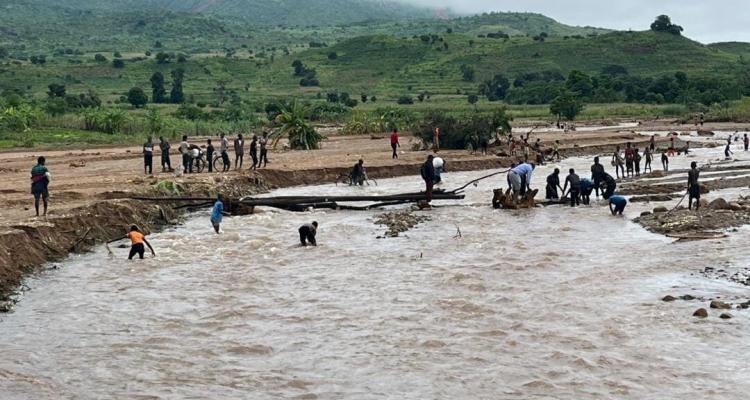
Granted, nature does throw her weight around way too easily these days, leaving us orphaned, destitute, our food bowls wiped out, robbing us of our hard-earned national development gains, and, yes, in a fiscal chokehold and much poorer but we are also in the bad habit of hurling unmerited blame at nature, forgetting nature’s inherent good. The disastrous occurrences (the deliverers of unnecessary death and destruction) are an inseparable part of nature.
Man has always been drawn to, and inspired by the natural world. Many a researcher or technologist across professional sectors and disciplines has harnessed the best of nature to realize incredible inventions, guaranteed of their faultlessness by nature’s own testing and re-testing in evolutionary experiments.
Sadly, not everyone shares this reverence for nature. It has become fashionable for today’s economic managers to scapegoat nature every time the man-devised tools and systems they employ fail to yield desired results.
A recent 2023 National Development Conference to assess fruits of implementation interventions for the first 10-year Malawi Implementation Plan (MIP-1), targeting a per-capita annual income of $1,000 by 2030 revealed incredibly disappointing results which were quickly attributed to nature-caused disasters that befell us around the reporting period, 2021-22: one-in-five of implementation interventions that were expected to start in the reporting period did not start and for those that started, three-in-five are either very slow or off-track; the economy registered a measly 2.1% average growth in 2021, declined to 1.2% in 2022 (well-below the target 6% average growth).
A matter-of-fact assessment of the less-than-inspiring performance would have revealed the causa prima to be a failure of the man-devised tools and systems: corruption, wastefulness, ineffectual programmes and poor implementation of policies. Any one of these is more ruinous and disastrous to the economy than nature-caused disasters that have befallen us thus far.
Research suggests an increase in corruption by one point on a scale from 0 (highly corrupt) to 10 (highly clean) lowers productivity by 4.0% of GDP and decreases net annual capital inflows by 0.5% of GDP.
Recently, Attorney General Thabo Chakaka-Nyirenda, while blaming ineffectual man-devised tools and systems for the country’s poor economic performance, revealed that the country losses about 10% of GDP (annually) to trade-based money-laundering. Contrast this with the World Bank assessed average economic impact of nature-caused disasters in Malawi of 0.9-1.4 percentage points decline in growth in the first year and 0.8-1.2 percentage points after the first year.
Regardless, there are a range of tools and systems that can help to improve disaster preparedness and effective disaster response. In 2010, our development partners committed to provide financial and technical assistance to support the country’s disaster risk reduction (DRR) plans and activities. It included piloting flood protection measures throughout the Shire River Basin and helping set-up reliable and accurate early warning and hydro-meteorological forecasting systems. I have seen no evidence the country put into effect any of this to make us disaster resilient, much less a nugget of interest in it. Why?
Our economic managers have determined it is preferable we be the object of pity – requires solution-less focus on scapegoating, attributing our failures to situational factors, more investment in the begging-bowl disaster response – and others do the heavy lifting for us than relying on ourselves doing something about our situation which means putting money and effort into disaster preparedness as a better investment in disaster resilience than passing round the begging bowls in more ‘churches’.
But it calls for a seismic mindset shift, enough to end the solution-less scapegoating of nature and deal the ‘begging bowl’ syndrome a fatal blow.
Maxwell Chisala is a native of the beautiful island of Likoma (Malawi) with unmatched passion for writing on critical issues affecting the legal, social and economic development trajectory of the country I love (Malawi).
Follow us on Twitter:














